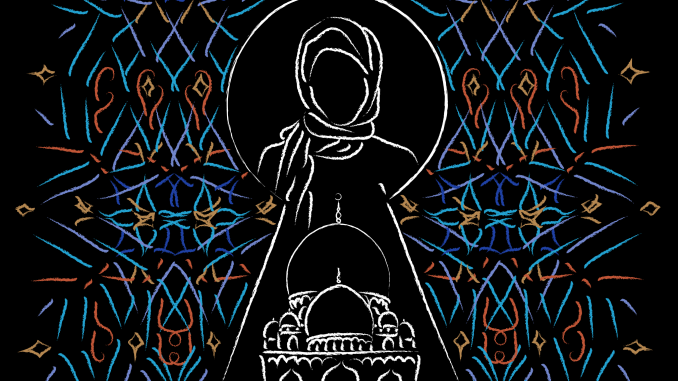
Growing up, Kurat Abaidullah’s parents made sure they taught her the importance of community service. She created the Ahmadiyya Muslim Student Association for Women in her sophomore year to help her and other Muslim women do that.
“I wanted other Muslim girls to also understand and be part of something that’s giving you such independence that’s giving you an opportunity to kind of serve a greater cause,” said Abaidullah, a first year biology graduate student and president and founder of AMSAW.
AMSAW participates in outreach through tabling, giving away buttons with positive messages, hosting blood drives, distributing food to the homeless and donating to food pantries, said Abaidullah, a graduate biology student and founder and president of AMSAW.
AMSAW’s goal is to help people through community service and educate others about Islam, Abaidullah said. Through outreach and charity work, they’re able to build a community at Temple while dispelling negative stereotypes about Islam.
“The objective of the Ahmadiyya Muslim Student Association for Women is to erase any misinterpretation that Islam is a violent or a religion that condones injustice,” said Abaidullah.
The club is an extension of Lajna Ima’illah USA, the women’s auxiliary organization of the Ahmadiyya Muslim community, which has a chapter at the Bait-ul-Aafiyat Mosque on Glennwood Avenue near 13th Street that Abaidullah attends, she added.
The mosque hosted a blood drive as part of the Muslims for Life campaign with the American Red Cross on the anniversary of the Sept. 11 attacks.
The goal of the blood drive was to save lives and to create unity, because it’s harder to hate someone when they are doing life-saving work, Abaidullah added.
On Oct. 11 and 13, Abaidullah and other club members stood outside the Howard Gittis Student Center handing out buttons with “Love For All Hatred For None” written on them to anyone who could answer a trivia question about Islam, Abaidullah said. They will be handing out buttons outside the Student Center again on Nov. 15.
Club members and women from the mosque made the buttons, said Nauma Mahmood, a junior public health major and AMSAW’s vice president. AMSAW members handed out about 1,300 pins.
Mahmood joined the organization when she transferred to Temple from the Community College of Philadelphia two years ago because she wanted to be involved with the local community while having opportunities to help others, she said.
Being part of the Ahmadiyya Muslim community helps Mahmood stay focused on her goal of getting her degree and, when she needs help, she has people to turn to, she said.
Before she was born, Mahmood’s parents enrolled her in the Waqf-e-Nau, a religious program which encourages devotees to use their professional skills to help others, Mahmood said. She reaffirmed that commitment when she graduated high school and plans to continue in her religious duties when she graduates from Temple.
The Waqf-e-Nau pledge is taken three times and the person fills out a form and writes a personal letter stating that they are choosing to recommit of their own free will, Mahmood said.
“It’s not that you just see a community and just follow them,” Mahmood added. “You do your own research. When I became 17 when I started thinking about it, why do I follow this community? It’s not just because I’m born into it. I need to follow it.”
Mahwish Irfan joined AMSAW two years ago when Abaidullah created the club and has participated in events, like one where students could stop by AMSAW’s booth and try on headscarves and ask questions about Islam, she said.
There haven’t been as many in-person events because of the COVID-19 pandemic but Irfan is looking forward to doing outreach again, said Irfan, a senior biology major.
“We’re able to reach and tell people how different Islam is and all the misconceptions that people have regarding our religion,” Irfan said. “It’s really great to clear that out for people.”
Learning about different religions is a passion of Irfan’s, so the headscarf event gave her the opportunity to meet new people and learn about their faith while they learned about hers, said Irfan, a senior biology major.
The interfaith community building is another important part of love for all, hatred for none, Abaidullah said. Before the COVID-19 pandemic, Abaidullah’s mosque brought women of different faiths together to discuss their beliefs and bond.
“In a time and in a world where there’s so much trouble and so much hate, this is a sanctuary,” Abaidullah said.


Be the first to comment